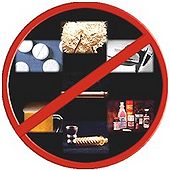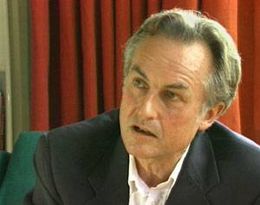Atheism and drug addiction

According to Science Daily:
| “ | Young Swiss men who say that they believe in God are less likely to smoke cigarettes or pot or take ecstasy pills than Swiss men of the same age group who describe themselves as atheists. Belief is a protective factor against addictive behaviour. This is the conclusion reached by a study funded by the Swiss National Science Foundation.
Karl Marx said that religion was the opium of the people. New figures now suggest that religion plays a role in preventing substance misuse. A research team led by Gerhard Gmel from Lausanne University Hospital has shown in the journal Substance Use & Misuse that, in Switzerland, fewer religious young men consume addictive substances than men of their age group who are agnostics or atheists. At the army recruitment centre For their study on substance use in Switzerland, Gmel and his colleagues interviewed almost twenty-year-old men at army recruitment centres in Lausanne, Windisch and Mels between August 2010 and November 2011. The researchers have now evaluated the 5387 questionnaires completed by the young men. Based on the responses, the scientists split the young men into five groups: the "religious" believe in God and attend church services, the "spiritual" believe in a higher power, but do not practice any religion, the "unsure" do not know what to believe about God, the "agnostics" assume that no-one can know whether there is a God or not, and the "atheists" do not believe in God.[2] |
” |
Contents
Barna Group study: Atheists and beliefs about illegal drug use and excess alcohol use
The Barna Group found that atheists and agnostics in America were more likely, than theists in America, to look upon the following behaviors as morally acceptable: illegal drug use; excessive drinking; sexual relationships outside of marriage; abortion; cohabitating with someone of opposite sex outside of marriage; obscene language; gambling; pornography and obscene sexual behavior; and engaging in homosexuality/bisexuality.[3]
Statistics on religion/irreligion and drug use

The Christian Post reported:
| “ | Religion has "enormous potential for lowering the risk of substance abuse among teens and adults," according to the National Center on Addiction and Substance Abuse. They report that adults and teens who consider religion to be very important and who attend religious services weekly or more often are "far less likely to smoke, drink or use illicit drugs." In addition, those battling addiction who attend spiritually-based support programs as part of their treatment "are more likely to maintain sobriety."
By contrast, adults who never attend religious services are "almost seven times likelier to drink, three times likelier to smoke, more than five times likelier to have used an illicit drug other than marijuana, almost seven times likelier to binge drink and almost eight times likelier to use marijuana" than adults who attend religious services at least once a week. Research also indicates that teenagers who are involved in religious activities are half as likely to have substance abuse problems as those who are not. In addition, spirituality has been found to help teens overcome genetic tendencies for alcoholism, social pressure, and a family history of abuse.[5] |
” |
Atheism and alcoholism

See also: Atheism and alcoholism
Atheists and atheistic cultures often have significant problems with excess alcohol usage (For more information please see: Atheism and alcoholism).
Secular countries/regions and alcoholism
Secular Europe:
According to the World Health Organization's (WHO) regional office in Europe, "The WHO European Region has the highest proportion in the world of total ill health and premature death due to alcohol.[7]
Australia:
An Australian National Council on Drugs (ANCD) report indicated that 20% of Australians drink at levels putting them at risk of lifetime harm.[8]
For more information, please see: Godless Australia and alcoholism

Asian countries:
History of communism:
Alcoholism was a serious social problem in the former atheistic Soviet Union.[11] Between 1940 and 1980, this atheist state had the largest increase of the amount of alcohol usage in the developed world.[12]
Atheism, alcoholism and anger
Irreligion, alcoholism and various generations in the United States
Recent generations in the United States:
- Irreligion, baby boom generation and alcoholism
- Irreligion, Generation X and alcoholism
- Irreligion, millenials and alcoholism
Binge drinking and brain damage
A 2012 study suggests that a habit of binge drink risks serious brain damage including increasing memory loss later in adulthood.[13][14]
Currently, there is a downward trend in intelligence scores in secular countries (see: Intelligence trends in religious countries and secular countries).
Atheism, binge drinking and suicide
Binge drinking is a potent risk factor for suicide.[15] Atheists have a higher suicide rate than the general population.
Atheist arrogance and drug addition

See also: Atheism and arrogance and Abrasiveness of Richard Dawkins and Liberal elite
The atheist Chris Arnade wrote The Guardian article The people who challenged my atheism most were drug addicts and prostitutes
| “ | Soon I saw my atheism for what it is: an intellectual belief most accessible to those who have done well.
I look back at my 16-year-old self and see Preacher Man and his listeners differently. I look at the fragile women praying and see a mother working a minimum wage custodial job, trying to raise three children alone. Her children's father off drunk somewhere. I look at the teenager fingering a small cross and see a young woman, abused by a father addicted to whatever, trying to find some moments of peace. I see Preacher Man himself, living in a beat up shack without electricity, desperate to stay clean, desperate to make sense of a world that has given him little. They found hope where they could... I also see Richard Dawkins differently. I see him as a grown up version of that 16-year-old kid, proud of being smart, unable to understand why anyone would believe or think differently from himself. I see a person so removed from humanity and so removed from the ambiguity of life that he finds himself judging those who think differently. I see someone doing what he claims to hate in others. Preaching from a selfish vantage point.[17] |
” |
See also
References
- ↑ Believers Consume Fewer Drugs Than Atheists, Christian Post, By Jim Denison, Christian Post Columnist, October 9, 2013|9:47 am
- ↑ Believers consume fewer drugs than atheists, Science Daily, Date:October 3, 2013, Source: Schweizerischer Nationalfonds zur Foerderung der wissenschaftlichen Forschung]
- ↑ http://www.barna.org/barna-update/article/5-barna-update/58-practical-outcomes-replace-biblical-principles-as-the-moral-standard
- ↑ Believers Consume Fewer Drugs Than Atheists, Christian Post, By Jim Denison, Christian Post Columnist, October 9, 2013|9:47 am
- ↑ Believers Consume Fewer Drugs Than Atheists, Christian Post, By Jim Denison, Christian Post Columnist, October 9, 2013|9:47 am
- ↑ World Health Organization's (WHO) regional office in Europe - Alcohol usage of Europe
- ↑ World Health Organization's (WHO) regional office in Europe - Alcohol usage of Europe
- ↑ One in eight deaths of young Australians attributable to alcohol: National Council on Drugs report By Jane Mower, Updated 19 Nov 2013, 7:28pm
- ↑ http://www.ncbi.nlm.nih.gov/pubmed/18245818
- ↑ Alcoholism in the Soviet Union
- ↑ http://www.ncbi.nlm.nih.gov/pubmed/18245818
- ↑ Alcoholism in the Soviet Union
- ↑ http://alcoholism.about.com/cs/binge/a/aa000818a.htm
- ↑ http://www.scripps.edu/newsandviews/e_20121022/koob.html
- ↑ O'Connell, H; Lawlor, BA (October–December 2005). "Recent alcohol intake and suicidality--a neuropsychological perspective". Irish journal of medical science 174 (4): 51–4
- ↑ The people who challenged my atheism most were drug addicts and prostitutes, The Guardian, Tuesday 24 December 2013 09.40 EST
- ↑ The people who challenged my atheism most were drug addicts and prostitutes, The Guardian, Tuesday 24 December 2013 09.40 EST